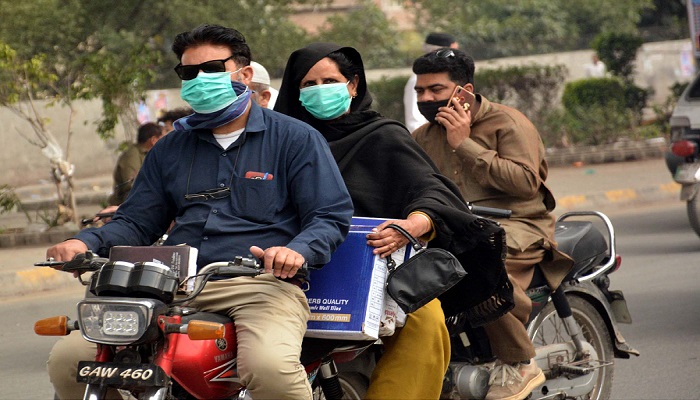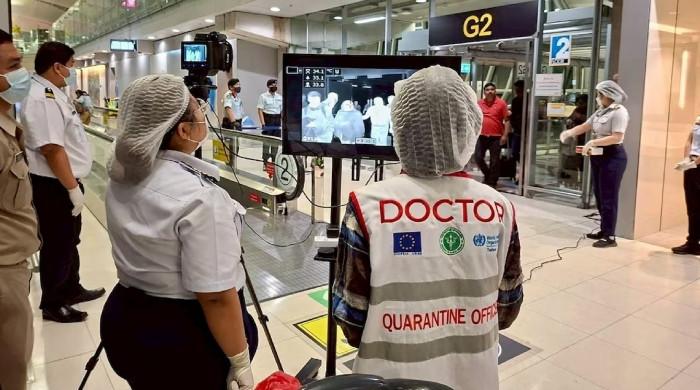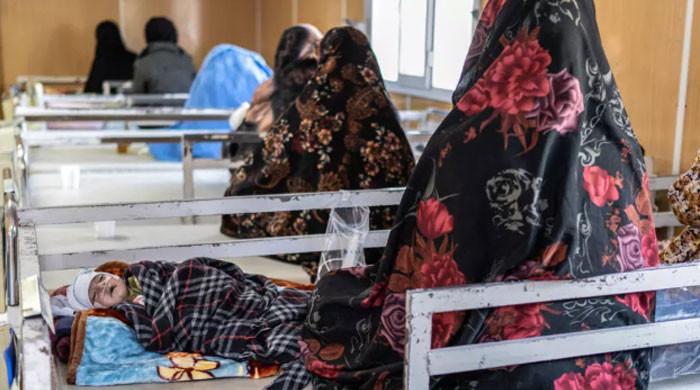Coronavirus: Sindh, Balochistan should impose travel restrictions to avoid Punjab fiasco, warn health officials
Ministry of National Health Services official says it is time for Sindh and Balochistan to learn from Punjab's experience
March 22, 2021

- Time for Sindh, Balochistan to learn from Punjab’s experience, says federal health official.
- No one lost their life to coronavirus in the province in the last 24 hours, Sindh government officials say.
- AKU infectious disease expert says some other coronavirus variants apart from the UK one could already be circulating in Karachi.
Sindh and Balochistan must impose strict restrictions on inter-provincial movement and travel between cities to prevent a coronavirus havoc similar to what is happening in Punjab, Islamabad Capital Territory and some cities of Khyber Pakhtunkhwa, say health officials.
They warned of the trouble caused by the UK strain of COVID-19.
“The UK variant started in Mirpur [Azad Kashmir] and spread towards Islamabad, Rawalpindi and other major cities of Punjab and KP,” an official of the Ministry of National Health Services, Regulations and Coordination was quoted as saying by The News.
The health official opined that travel restrictions need to be placed in Sindh before the risk and pace of transmission in areas where the new variant is not rampant yet heightens.
Read what you can and cannot do in Punjab amid increasing coronavirus restrictions
Sindh government officials said no one lost their life to coronavirus in the province in the last 24 hours. The government officials said this was the second time in March that not a single death was reported in 24 hours.
They said 232 fresh coronavirus cases were reported in the last 24 hours after 8,975 samples were tested. The positivity rate had dropped to 2.58% in Sindh, they said, adding that it had climbed to 9% in Punjab, the ICT and other parts of Pakistan.
The federal government official said that major cities of Sindh and Balochistan have so far been spared from the third wave of coronavirus that is being attributed to the B117 variant.
"It is time for Sindh and Balochistan to learn from Punjab’s experience and take measures to control the spread of the new variant, which is deadlier and more infectious than the original strain of the SARS-CoV-2," the official said.
Fearing that deaths due to COVID-19 in Pakistan could rise to up to 100 a day by mid-April, according to projections by different models, the official said strict control measures, including travel checks, were needed at inter-provincial borders, with restricted movements between cities and within cities, and prevention of large gatherings to minimise the spread of the deadly UK strain.
Read more: Lahore among five Punjab districts declared 'high risk' after UK virus variant spreads
When asked why they were sure that the UK strain was not present in Karachi and other cities of Sindh, the official said that compared to Punjab and Islamabad, the low positivity rate and decreased hospitalisation of patients with COVID-19 symptoms indicated that the new variant was not circulating in Sindh and Balochistan.
'Herd immunity through vaccine is a vague idea'
Herd immunity through vaccination is a vague idea, the official said in response to a question about the increasing pace of vaccination.
He said nations like Pakistan ought to "urgently protect high-risk populations" to keep the load on the health system manageable. "Our strategy is right, but the pace is not appropriate,” the official said.
Special Assistant to the Prime Minister on Health Dr Faisal Sultan said an epidemic burned through different parts of countries at different times, which was not strange at all.
Coronavirus in Pakistan: NCOC decides to tighten restrictions amid rising cases
“It depends on timing or prior wave [which was heavy in Karachi] and strains and weather and so many unknown variables.”
'Other deadlier COVID-19 variants could already be in Karachi'
Some other coronavirus variants apart from the UK one could already be circulating in Karachi, according to Aga Khan University Hospital infectious diseases expert Dr Faisal Mahmood.
He said these variants may be "deadlier and more infectious than the UK strain" or maybe less lethal and infectious, while the weather and some other factors and variables could have protected the people of Karachi and other cities of Sindh.
“We have already detected the UK variant in Karachi, and in fact, the first cases were detected by us at the AKU, so it’s not true that this variant would result in extreme disaster. We’re screening people occasionally, and every now and then, we find this variant here. Maybe there are a lot more people infected with the UK variant in Punjab and the upper parts of the country, while our weather is warm as compared to theirs these days,” he said.











